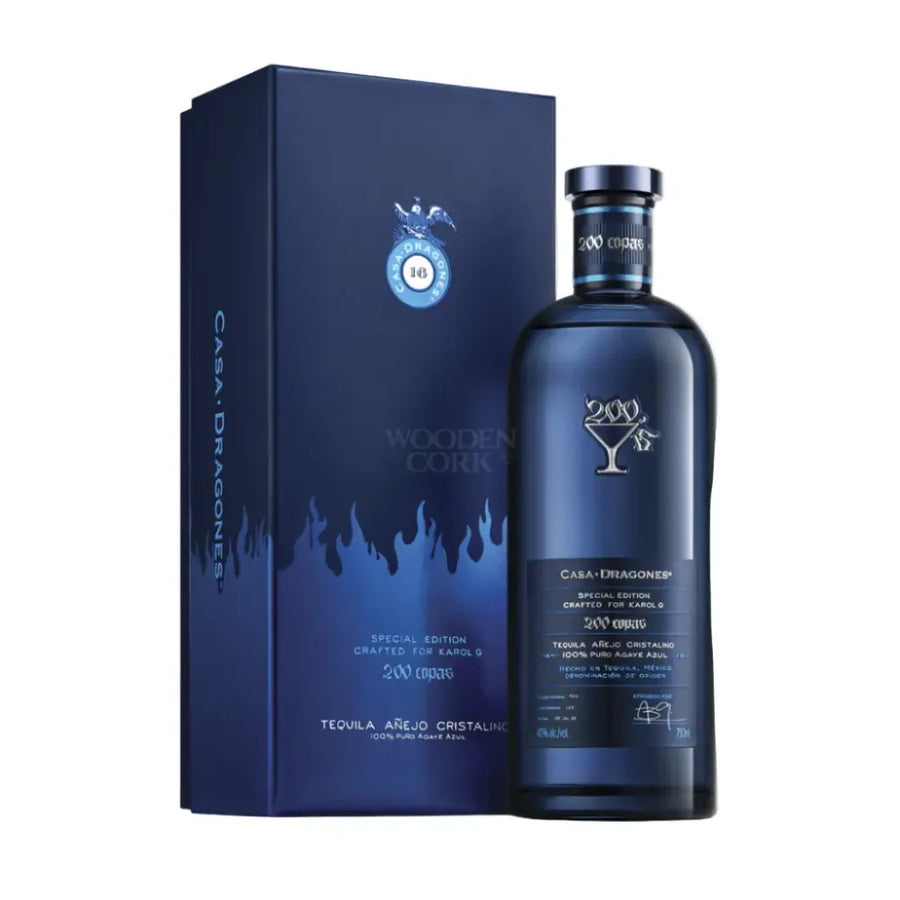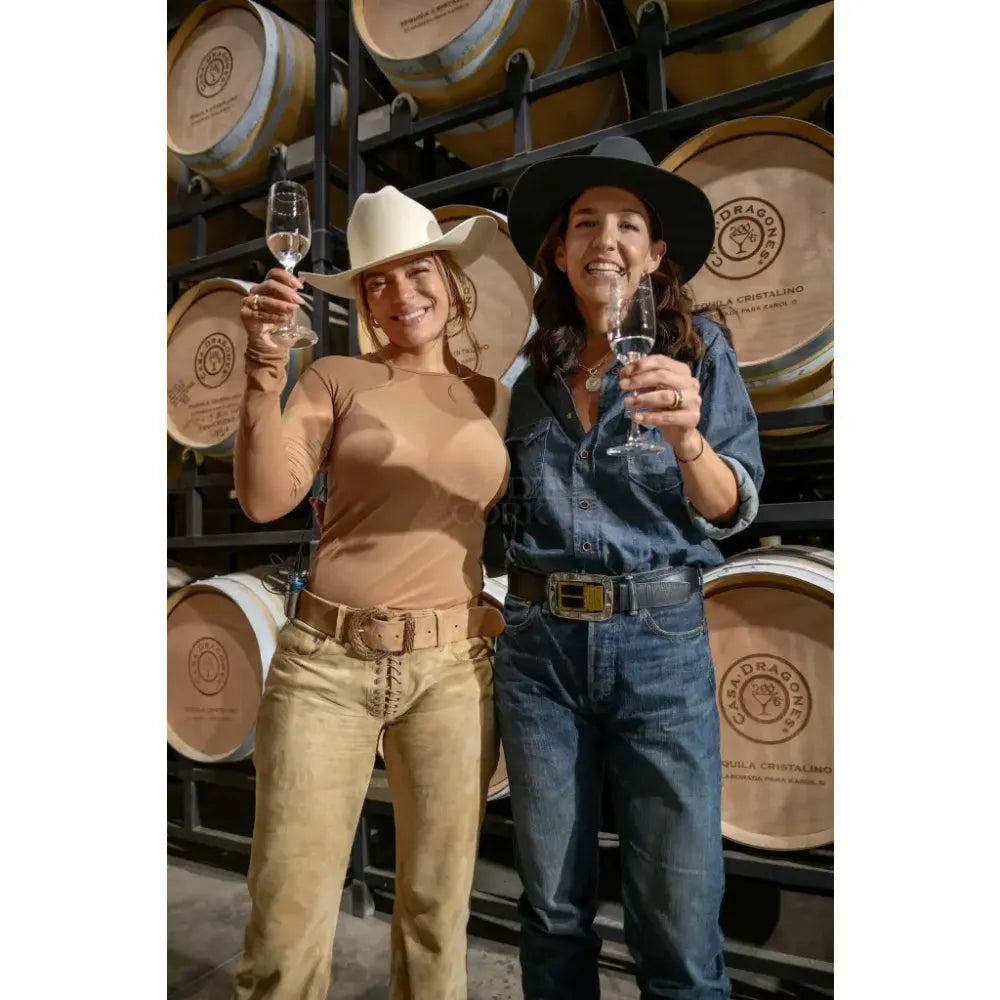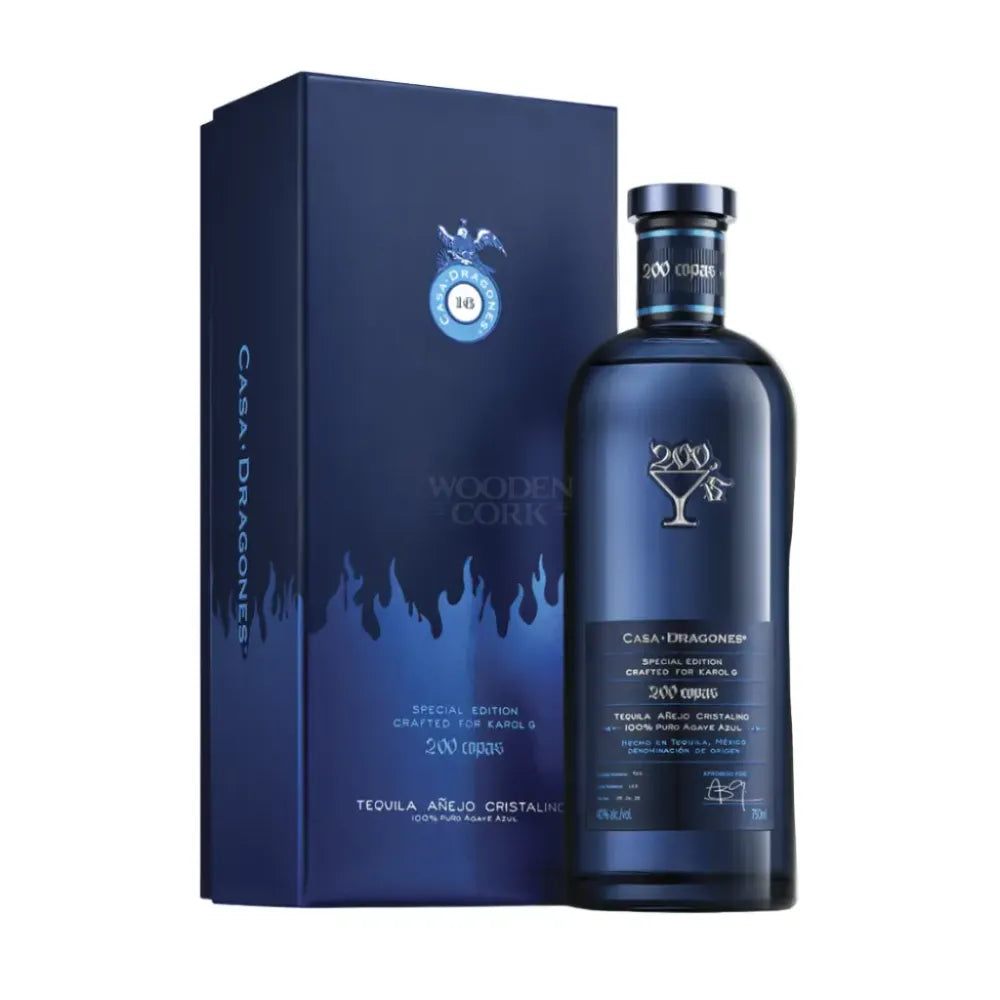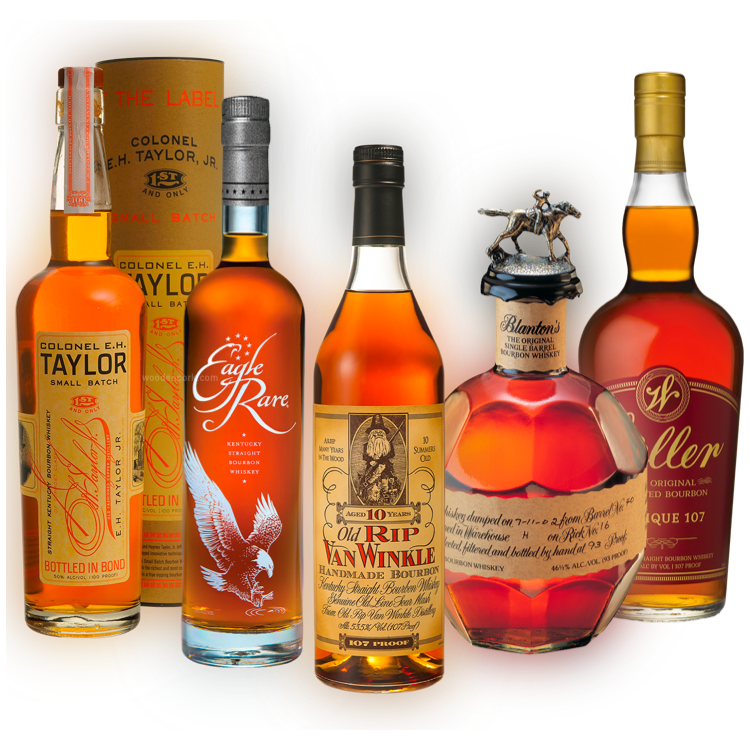What Is Additive-Free Tequila? A Guide to Clean Spirits
Understanding Additive-Free Tequila: What Sets It Apart
Additive-free tequila provides a purer and more authentic drinking experience, fundamentally defined by its adherence to traditional production methods and its exclusion of any non-essential additives. Tequila, as regulated by the Consejo Regulador del Tequila (CRT) in Mexico, is permitted to include up to 1% by weight of additives, such as flavorings, colorants, sweeteners, and other chemicals. However, additive-free tequila forgoes this allowance entirely, relying solely on agave’s raw qualities and traditional craftsmanship to achieve its flavor profile.
The distinction originates in how the spirit is produced. Authentic, additive-free tequila begins with fully matured Blue Weber agave plants, grown for approximately seven to nine years. Once harvested, the agave hearts, or piñas, are baked using traditional methods, such as slow roasting in brick ovens or cooking in stone pits. This practice ensures natural caramelization of the plant’s sugars, setting the foundation for balanced, nuanced flavors. After fermentation and distillation, the tequila is bottled or aged in oak barrels without the addition of enhancers.
In contrast, tequilas that include additives often utilize shortcuts to manipulate sweetness, increase complexity, or create artificial consistency. For example, glycerin may be used to provide a smoother texture, or vanillin might enhance vanilla-like notes. While these additives can appeal to consumers seeking predictability in flavor, they mask the organic character of agave and dilute the artisanal nature of the craft.
Adherence to authentic methods distinguishes additive-free tequila from its counterparts. It reflects the producer's commitment to quality, heritage, and transparency. Enthusiasts often cite the fresher, earthier taste as an authentic representation of Mexico's cultural and agricultural roots. For those seeking a more conscious, unadulterated spirit, additive-free tequila presents an opportunity to connect with the essence of the agave plant itself.
The Role of Additives in Commercial Tequilas
Additives play a significant role in shaping the taste, aroma, and overall presentation of many commercial tequilas. These substances are introduced during or after the production process to enhance certain characteristics, compensate for deficiencies, or appeal to broader consumer preferences. While additives are legally permitted in regulated quantities, their use has sparked debates surrounding authenticity and purity in tequila production.
The four primary additives allowed in tequila under Mexican regulations are flavoring agents, sweeteners, coloring, and glycerin. Each serves a distinct purpose:
- Flavoring agents: These are used to intensify or mimic natural flavors, giving the tequila a more prominent note of fruit, vanilla, or spices. These flavors might appeal to those seeking consistency across batches.
- Sweeteners: Substances like agave syrup or caramel are added to achieve a smoother, sweeter taste. These additions often cater to the modern palate, softening the tequila's traditional earthiness.
- Coloring: Caramel coloring is often used to replicate the appearance of aged tequila, even in spirits that have undergone minimal or no barrel aging. This creates a perception of complexity that may not align with the actual production process.
- Glycerin: This additive enhances mouthfeel, providing a silky texture and the illusion of higher alcohol content. It also adds a subtle sweetness that rounds out harsher flavors.
Producers often rely on additives to standardize their products, ensuring consistency in flavor and appearance across large-scale volumes. However, the use of these substances can sometimes mask lower-quality ingredients or shortcuts in the traditional production process. This reliance raises questions about the integrity of the final product and whether it reflects the heritage and craftsmanship of authentic tequila-making.
Debates surrounding their use have increased, as growing interest in clean-label spirits has shifted consumer curiosity toward additive-free options. Understanding these dynamics is essential to appreciating the differences between commercial and craft tequilas.
How Additives Affect Flavor, Quality, and Health
Additives are frequently introduced in tequila production to achieve consistent flavor profiles, enhance appearance, or alter sweetness. While these substances can streamline production and cater to consumer preferences, they often have significant implications for the spirit’s flavor, quality, and potential health effects.
Impact on Flavor
Certain additives, such as glycerin, caramel coloring, and artificial sweeteners, are used to modify or intensify flavors in tequila. Glycerin can create a smoother texture, masking imperfections in the distillation process. Caramel coloring influences the perceived age of the spirit while adding a subtle sweetness. Artificial or natural sweeteners can amplify the taste, catering to modern preferences for sweeter beverages, but these changes come at the expense of the authentic agave profile. Over-reliance on additives often dilutes the nuanced flavors produced during traditional fermentation and distillation processes.
Quality Concerns
The inclusion of additives can compromise the integrity of tequila. Authentic, traditionally made tequila prioritizes the natural flavors of agave, cultivated over years. Additives, by contrast, may be used to cover up shortcuts in production, such as using low-quality raw materials or accelerating aging. Spirits altered with such substances often lack the depth and complexity associated with premium quality tequila. This can mislead consumers, causing them to overpay for products that don’t meet artisanal standards.
Health Considerations
From a health perspective, additives in tequila can introduce unnecessary chemicals and artificial compounds into the body. Some additives, such as synthetic sweeteners, can trigger adverse reactions in sensitive individuals. Excessive caramel coloring has been linked to potential health risks when consumed in large quantities. Furthermore, additives may increase the likelihood of severe hangovers, as the body processes these compounds differently from pure alcohol and natural ingredients.
By understanding these impacts, consumers can make more informed choices, prioritizing purity and authenticity in their spirits.
The Process Behind Crafting Additive-Free Tequila
Creating additive-free tequila requires adherence to traditional methods that respect both the agave plant and the heritage of tequila craftsmanship. Every step of the process is designed to honor natural ingredients, avoiding shortcuts that would compromise the integrity of the final product.
The process begins with the careful selection of mature Weber blue agave plants, grown for seven to nine years until they reach peak sweetness. Only agave that has been cultivated without pesticides or chemical enhancers is used, ensuring its purity from the start. Once harvested, the piñas—the heart of the agave—are baked to extract their natural sugars. Traditional methods often involve slow-cooking the piñas in stone or brick ovens for 24 to 72 hours to develop deep, caramelized flavors, a stark contrast to quicker industrial techniques like autoclaves or diffusors.
After cooking, the softened piñas are crushed to release their juices. This step is performed using either a tahona, a large volcanic stone wheel, or a mechanical shredder, depending on the distillery’s heritage practices. Additive-free tequila relies on fermentation with only naturally occurring or purposefully cultivated yeast, avoiding any industrial yeast that could alter the flavor or stability artificially. The fermentation process is often slower, allowing for the full expression of the agave’s natural character.
Distillation occurs in copper or stainless steel stills across two rounds, refining the spirit while eliminating impurities. Throughout this step, distillers refrain from introducing any additives such as glycerin, artificial sweeteners, or coloring agents, relying solely on the purity of the distilled liquid. Finally, the tequila may be bottled directly as blanco or aged in oak barrels, where it absorbs natural characteristics without any chemical flavor enhancements. Every step emphasizes transparency, tradition, and authenticity.
Key Features to Look for in Clean, Authentic Tequila
When assessing whether a tequila qualifies as clean and authentic, there are specific features that enthusiasts and consumers should consider. These characteristics distinguish additive-free tequila and ensure a commitment to quality and tradition in its production.
Ingredients and Purity
Authentic tequila is made exclusively with blue Weber agave and contains no artificial additives, such as sweeteners, flavor enhancers, or colorings. For a cleaner option, consumers should look for tequilas labeled as “100% agave,” guaranteeing that no foreign sugars or fillers were introduced during production.
Transparent Production Practices
Producers of additive-free tequila often pride themselves on transparency. Seek brands that openly share details about their production process, including the roasting of agaves, fermentation techniques, distillation methods, and aging practices. Such transparency is often an indicator of adherence to tradition and avoidance of shortcuts.
Verification of Additive-Free Certification
Tequilas that are confirmed to be free of additives are often vetted by organizations like Tequila Matchmaker or verified via independent testing. Look for brands that display certification or verification logos to signal that their claims have been authenticated by third-party experts.
Unmanipulated Flavor Profile
A clean tequila should deliver a natural flavor profile that reflects the terroir, the blue Weber agave’s character, and the craft behind its production. Beware of tequilas with overly sweet, artificial, or cloying notes, as these could hint at the presence of additives or chemical adjustments.
Attention to Aging Categories
If opting for reposado or añejo tequila, check whether the aging process is achieved using barrels, not by adding caramel coloring or glycerin to simulate prolonged maturation. Additive-free tequilas will allow the natural aging process to influence their flavor and color.
Distillery and Brand Reputation
Reputable distilleries known for their artisanal methods and dedication to quality are more likely to produce additive-free tequila. Researching the brand’s history, location, and commitment to traditional practices can further validate its authenticity.
The NOM and CRT: Ensuring Tequila Authenticity
The integrity of tequila production is safeguarded by two key entities: the Norma Oficial Mexicana (NOM) and the Consejo Regulador del Tequila (CRT). These organizations play a pivotal role in upholding quality and ensuring that tequila adheres to the strict standards that define its designation of origin.
The NOM serves as a regulatory framework that dictates the legal definitions, production processes, and labeling requirements essential for tequila. Every bottle of tequila categorized under the NOM classification must meet a specific set of criteria. This includes using at least 51% blue Weber agave sugars in the fermentation process, adhering to defined geographic production zones within Mexico, and employing approved production methods.
The CRT, on the other hand, functions as an oversight body, verifying the compliance of tequila producers with NOM regulations. Its responsibilities encompass inspecting distilleries, certifying production facilities, and implementing a system of traceability. Each bottle of certified tequila is labeled with a unique NOM number, allowing consumers to identify the specific distillery responsible for its creation. By providing traceability, the CRT assures consumers of tequila’s origin, authenticity, and adherence to traditional methods.
Furthermore, the CRT evaluates the use of additives, ensuring that any tequila labeled as “100% agave” meets the strictest standards of production purity. Additives, while legally permissible in small amounts, must align with the specifications outlined by the NOM. This meticulous oversight protects the reputation of genuine tequila, prevents fraudulent practices, and preserves traditional craftsmanship.
Through the collaborative efforts of the NOM and CRT, tequila producers are held accountable for maintaining the authenticity and heritage of this iconic Mexican spirit.
Why Choose Additive-Free Tequila Over Mass-Produced Options
Additive-free tequila offers a unique, authentic experience that sets it apart from mass-produced alternatives. Unlike industrial tequilas, which often rely on artificial sweeteners, flavor enhancers, and caramel coloring to manipulate taste and appearance, additive-free tequila adheres to traditional production methods. This commitment ensures that every bottle stays true to its origins and reflects the natural qualities of agave.
One of the primary advantages of additive-free tequila is its transparency. Producers who craft this type of tequila avoid shortcuts, adhering to production practices that honor the spirit-making process. By using only agave, water, and yeast, these tequilas deliver a pure expression of the plant itself. Consumers can trust that what they are consuming is unadulterated and free from unnecessary chemicals.
From a flavor perspective, additive-free tequila stands out as a superior choice. Without artificial ingredients, the tequila highlights the complexity of agave flavors, ranging from herbaceous and earthy notes to hints of citrus and pepper. Mass-produced alternatives often mask the agave’s natural profile with additives, diluting the essence of tradition. For those who value the craftsmanship of authentic spirits, this distinction is key.
Health-conscious individuals also benefit from choosing additive-free tequila. Without artificial additives, these tequilas are less likely to contribute to adverse effects like headaches and excessive sugar intake. This makes them a cleaner choice for mindful drinking.
Additionally, many additive-free tequilas are crafted by smaller producers who uphold sustainable practices. By supporting these brands, consumers contribute to preserving traditional methods, local economies, and environmentally responsible farming techniques. This choice goes beyond taste—it promotes ethical consumption.
Spotting Additive-Free Tequila: Reading Labels and Certifications
Identifying additive-free tequila requires careful attention to details on the bottle and an understanding of important certifications. Labels and official designations can provide crucial insight into the production methods and authenticity of the tequila. Consumers should focus on several key elements when examining a bottle.
- Check for “100% Agave” on the Label Only tequilas labeled “100% de agave” or “100% puro de agave” are made exclusively from the blue Weber agave plant. This designation ensures the tequila has not been mixed with other sugars or ingredients during fermentation, a common practice in mixto tequilas. However, this alone does not confirm the absence of additives, as flavorings can still be added after fermentation or distillation.
- Look for the Tequila Regulatory Council (CRT) Certification The CRT plays a role in enforcing tequila production standards. While their certification ensures compliance with legal production practices in Mexico, it does not certify tequila as additive-free. For additive-free status, additional diligence is needed.
- Seek Out the “Additive-Free” Verification from Trusted Programs Programs like Tequila Matchmaker’s Additive-Free Verification provide a reliable way to confirm whether a tequila is free from artificial flavors, sweeteners, or colorings. This verification process involves on-site inspections and transparency from distilleries.
- Inspect the NOM Number on the Bottle Every tequila bottle includes a four-digit NOM (Norma Oficial Mexicana) number, identifying the distillery where it was produced. Researching the distillery using resources like official CRT databases or tequila-focused platforms can reveal its production practices.
- Avoid Ambiguous Terms and Highly Commercialized Branding Phrases such as “premium,” “ultra-smooth,” or “handcrafted” are marketing terms and hold no regulatory significance. Authentic, additive-free producers often rely on reputation rather than flashy branding.
By focusing on these markers, consumers can more confidently discern additive-free tequila options and enjoy a cleaner, more authentic spirit.
Top Brands Committed to Crafting Additive-Free Tequila
A growing number of tequila brands are prioritizing authenticity and purity, rejecting the use of additives such as artificial flavors, sweeteners, and colors. These pioneering producers adhere to traditional methods, ensuring that their spirits remain true to the essence of 100% agave tequila.
1. Tequila Fortaleza
Known for its commitment to heritage, Tequila Fortaleza maintains traditional processes such as stone-crushing agave with a tahona wheel and slow distillation methods. By avoiding shortcuts, this brand crafts rich, complex tequilas entirely free of additives.
2. G4 Tequila
Produced by the Camarena family, G4 Tequila stands as a stellar example of additive-free craftsmanship. The family-owned distillery focuses on natural balance, combining clean, mineral-rich spring water and rainwater to produce tequila that highlights agave’s natural flavors.
3. Casa Noble
Casa Noble tequila is certified organic and adheres strictly to a philosophy of transparency. Distilled in small batches, their tequilas are triple distilled to refine the spirit’s qualities without resorting to artificial enhancements.
4. Tequila Ocho
Tequila Ocho is celebrated as a single-estate tequila, with each batch derived from specific fields of agave plants. This brand focuses on allowing the terroir, or land-driven flavor profiles, to shine without relying on additives to alter taste or aroma.
5. Siete Leguas
One of the most highly regarded tequileras in Mexico, Siete Leguas combines artisanal methods such as using donkey-powered tahonas with a dedication to producing tequila free of industrial additives. Their methods remain rooted in tradition, yielding naturally robust flavor profiles.
6. El Tesoro de Don Felipe
El Tesoro highlights tequila’s versatility by offering a range of traditional expressions, all crafted without additives. Distilled to proof to avoid dilution, the brand captures the unadulterated essence of roasted agave.
Through their shared dedication to authenticity, these brands define the gold standard of additive-free tequila, setting an uncompromising example within the industry.
Enjoying Additive-Free Tequila: Tips for Tasting and Pairing
Exploring additive-free tequila begins with understanding how its purity enhances the tasting experience. The absence of artificial flavors, sweeteners, and coloring allows the natural characteristics of the agave to shine through. Proper tasting and pairing techniques can elevate the appreciation of this clean and unadulterated spirit.
Tips for Tasting Additive-Free Tequila
- Select the Right Glassware Use a proper glass, such as a tequila-specific copita, flute glass, or even a Glencairn glass. These help concentrate the aroma and allow the tequila’s nuanced characteristics to reveal themselves.
- Evaluate the Appearance Observe the tequila in natural light. Additive-free tequila typically has a clear and vibrant look in its blanco form, while reposados and añejos gain their coloration solely from barrel aging, not added caramel or dyes.
- Engage the Senses Begin by nosing the tequila. Inhale gently to detect aromatic notes such as cooked agave, citrus, herbs, or spices. Progress to small sips, holding the liquid on the palate to sense flavors like vanilla, pepper, or floral undertones.
- Start Slowly Begin with blanco tequila to experience the most unaltered profile of the agave plant. Gradually move to aged varieties to understand the impact of wood barrels on flavor.
Pairing Additive-Free Tequila with Food
- Pair blanco tequila with light dishes like ceviche, fresh sushi, or grilled vegetables.
- Match reposado tequila with slightly richer options such as roast chicken, carnitas, or mole sauce due to its subtle oak influence.
- Complement añejo tequila with aged cheeses, dark chocolate, or grilled red meats to balance its complex, smoky essence.
Properly enjoying additive-free tequila revolves around focusing on its craftsmanship and versatility. Its authentic profile offers a refined drinking experience whether sipped neat or thoughtfully paired with cuisine.
The Growing Movement Toward Clean Spirits in the Industry
The demand for transparency and authenticity in spirits production has gained remarkable traction in recent years. Consumers have become increasingly conscious of what goes into the products they consume, sparking a shift toward clean and additive-free options. Within the tequila industry, this movement champions the return to traditional methods that emphasize quality, sustainability, and purity, aligning closely with the ethos of craft distilling.
Many producers are reassessing their practices to meet these changing consumer expectations. Historically, certain additives such as caramel coloring, glycerin, oak extracts, and sweeteners have been permitted under regulatory frameworks like the Norma Oficial Mexicana (NOM) for tequila production. While these additives are allowed within specific limits, they have raised concerns among purists and informed drinkers searching for unadulterated flavors.
The rising interest in clean spirits has encouraged distilleries to refine their methods, leaning on natural processes to craft tequilas that highlight the genuine character of Blue Weber agave. A growing number of producers are voluntarily forgoing additives entirely, even when doing so may involve extra time or higher costs. By prioritizing authenticity over shortcuts, these brands are resonating with a consumer base that values integrity and craftsmanship.
In response to this demand, several certifications and labeling practices have emerged to help guide buyers in navigating the market. Certifications such as "additive-free" labels, provided by independent bodies, aim to validate and celebrate transparency in production practices. Meanwhile, marketing efforts have shifted focus to education, ensuring that consumers understand the distinctions between clean spirits and those with artificial modifications.
This movement is also being fueled by the broader wellness trend, where individuals are seeking higher-quality products that align with health-conscious lifestyles. Artisanal brands, in particular, are benefiting from this shift, as their adherence to minimal intervention resonates with evolving market preferences. As these trends continue to reshape the industry, the conversation surrounding clean spirits is expected to grow, fostering further innovation and transparency in spirit production.
Myths and Misconceptions About Additive-Free Tequila
The landscape of tequila often harbors a variety of myths, especially regarding additive-free tequila. These misconceptions can create confusion about what constitutes a truly pure and high-quality spirit. By unpacking some of these myths, consumers can better understand the value and craft of additive-free tequila.
Myth 1: All Premium Tequilas Are Additive-Free
One common misconception is that higher price tags automatically equate to additive-free tequila. While premium branding often suggests quality, this does not guarantee the absence of additives. In reality, many tequilas marketed as "premium" may still contain artificial flavors, sweeteners, or colorants to enhance their appeal. The only way to confirm is to look for certifications like "Verified Additive-Free" by reputable organizations or to research the distillery's practices.
Myth 2: Additives Only Include Harmless Ingredients
Another widespread myth is that the additives used in tequila are always natural and harmless. While some may be natural, others can include artificial flavoring agents, glycerin, or caramel coloring. These ingredients are often introduced to imitate qualities developed through traditional artisanal methods, which can sacrifice authenticity for convenience.
Myth 3: Additive-Free Tequila Tastes Bland
Some believe that additive-free tequila lacks flavor or complexity because it avoids artificial enhancements. However, this could not be further from the truth. Tequilas made following traditional processes often showcase rich, layered flavors derived from precise agave harvesting, slow cooking, and meticulous distillation. The absence of additives allows for an authentic expression of the agave’s natural character.
Myth 4: “Natural” Marketing Labels Guarantee Purity
Marketing terms like “natural” or “pure” tend to suggest authenticity, but these terms are not tightly regulated within the tequila industry. A natural label may still conceal the subtle use of additives unless explicitly verified by an additive-free certification.
Understanding these myths equips individuals to recognize the craftsmanship behind tequila that remains true to its roots, free from synthetic interventions.
How to Support Sustainable and Ethical Tequila Production
Consumers can play a vital role in encouraging sustainable and ethical tequila production by making informed choices and advocating for responsible practices within the industry. This starts with understanding the key factors that contribute to sustainability and the importance of fair practices in agave farming and tequila manufacturing.
One way to support sustainability is by prioritizing additive-free tequilas from producers who are committed to preserving the environment. Additive-free tequila avoids the use of artificial flavorings, sweeteners, and chemical additives, reducing the overall environmental impact of production. Such labels are often verified by organizations, such as the Tequila Regulatory Council (CRT) and independent certifiers like Tequila Matchmaker. Looking for these certifications is an essential first step.
Consumers can also support brands that practice sustainable agave farming. This includes purchasing from producers who grow their agave without relying solely on monoculture farming, which depletes the soil and harms biodiversity. Sustainable producers often incorporate crop rotation, replant agave, and use techniques to limit soil erosion and nutrient loss. Supporting companies that practice regenerative agriculture strengthens ecosystems and protects agave for future generations.
Ethical labor practices should also be prioritized when choosing tequila brands. Some producers work with jimadores (expert agave harvesters) to ensure fair wages and equitable treatment. Additionally, seeking out brands with transparent supply chains shows a commitment to fair labor and responsible production.
Recycling and upcycling initiatives are another key aspect. Supporting brands that use eco-friendly packaging or recycle agave byproducts for compost and biogas reduces waste and fosters responsible resource use. Asking questions or researching a brand’s sustainability practices can guide consumers toward better choices.
By favoring these sustainable and ethical practices, consumers actively champion environmental protection and fair production principles, shaping the tequila industry toward a cleaner, more responsible future.





